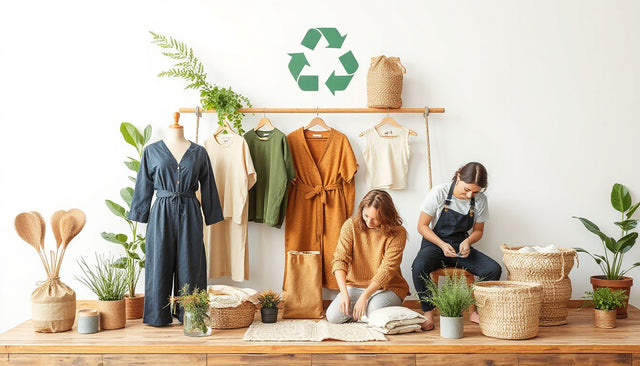Empower Your Purchases: A Guide to Supporting Ethical Brands for a Better Tomorrow
Today, every choice affects people and the planet. You support ethical brands when you care about fairness, nature, and truth. This guide helps you make clear, smart choices that build a better future.
What Does Supporting Ethical Brands Mean?
Choose brands that care. They treat workers fairly, protect nature, tell the truth, and care for animals. They also work to build strong local communities.
- Fair labor practices: Workers are respected. They get fair pay and safe work.
- Environmental sustainability: Brands use safe methods. They reduce waste and use good materials.
- Transparency and accountability: Brands share how they work. They show where their materials come from and how they make products.
- Animal welfare: There is no harm towards animals.
- Community and positive social impact: Local communities get support and fairness.

Why Now? The Urgency Behind Ethical Purchasing
Many industries hurt workers and nature. Fast fashion makes cheap clothes with poor conditions. Toxic chemicals and unfair pay are common. Now, people learn and push for better rules. Your buying choices help change these rules.
How to Identify and Support Ethical Brands
1. Look for Trusted Certifications and Ratings
-
bluesign® Approved
They cut toxic chemicals and use smart factory methods. -
The Good Shopping Guide’s Ethical Accreditation
They check over 30 points. They ask about nature, labor, and animal care. -
Ethical Consumer Ratings
They show real brand ratings. You see which brands care.
2. Check Brand Transparency
Find brands that share details. They map supply chains from start to finish. They use verified checks. They offer digital passports or QR codes that show product history.
3. Prioritize Sustainable Materials & Production
Support brands that use smart ways. They avoid harmful chemicals like PFAS and phthalates. They choose recycled, green fibers. They cut water, energy, and waste. They design services for renting, repairing, or upcycling clothes.
4. Engage in Conscious Consumption
Use what you own, then think of new buys. Swap, borrow, or choose secondhand. Buy lasting, high-quality items. Choose brands known for care in labor and nature.
5. Support Brands with Clear Social Impact
Pick brands that pay fair wages. They keep workplaces safe. They build strong communities and care for animals.
Overcoming Common Challenges
Is Ethical Fashion Too Expensive?
Ethical products can cost more at first. They pay fair wages and use safe materials. But they last long and cut waste. To shop smart on a budget:
- Buy fewer items of better quality.
- Look for sales and outlet deals.
- Try secondhand options.
Avoiding Greenwashing
Greenwashing means brands lie about being ethical. Use trusted marks and guides to check facts before you buy.
Quick Tips to Empower Your Ethical Shopping Journey
-
Research before you buy.
Use sites like The Good Shopping Guide and Ethical Consumer. -
Ask brands questions.
Inquire about work conditions, materials, and nature care. -
Advocate for change.
Share your ethical finds with friends and family. -
Stay informed.
Follow news on ethical brands and new rules.
Conclusion
Ethical brands matter. They show care for people, animals, and nature. By learning and checking facts, every purchase sends a clear vote for fairness and truth. Your choices today build a better tomorrow.
Remember: Each ethical purchase counts. Support fairness. Choose sustainability. Act now.
Helpful Resources to Get Started:
- bluesign® system — Clean chemistry and textile safety.
- The Good Shopping Guide — Ethical brand accreditation and ratings.
- Ethical Consumer — Comprehensive ethical product and brand guides.
Empower your spending. Support what matters. Make your purchases count.
At Design Delight Studio, we’re committed to sustainable living and ethical fashion. Every article reflects our passion for mindful choices that empower both people and the planet.






















0 comentarios